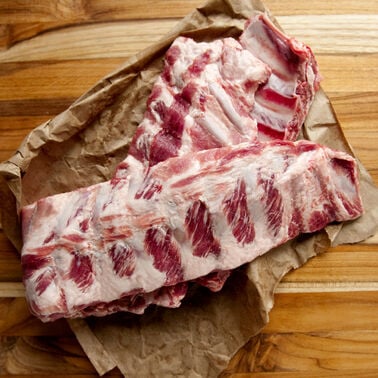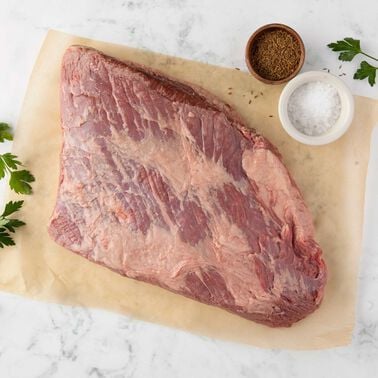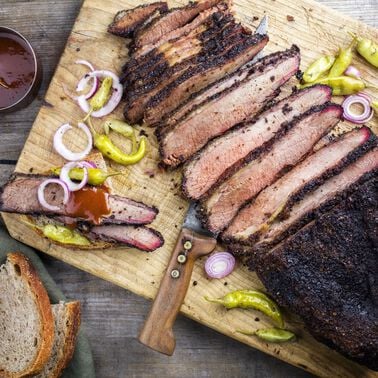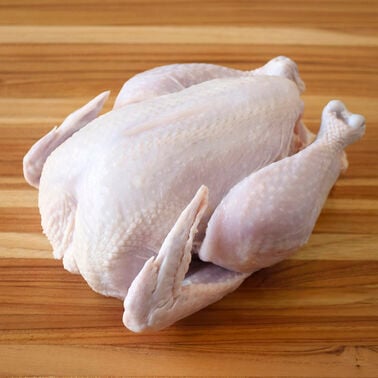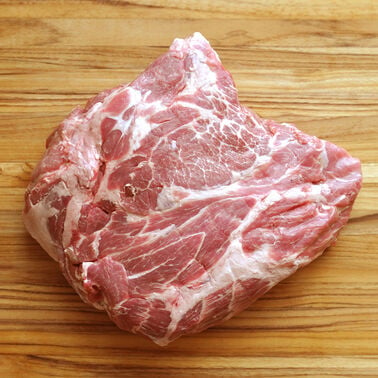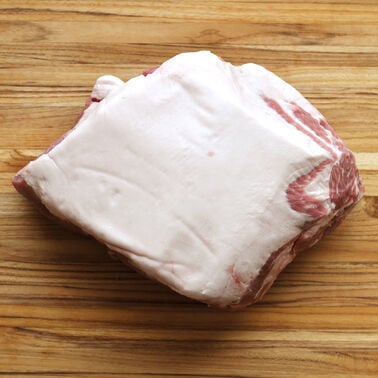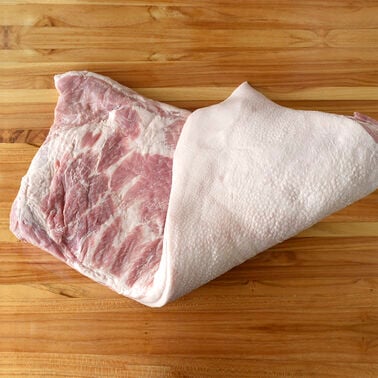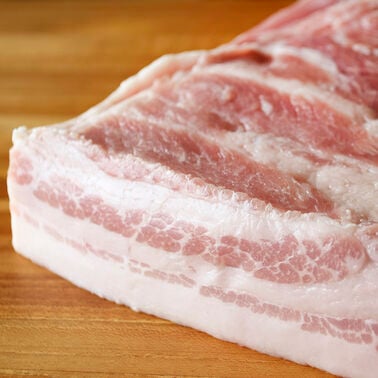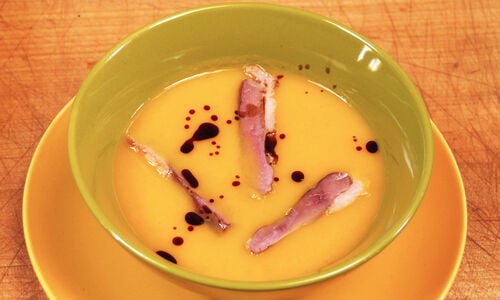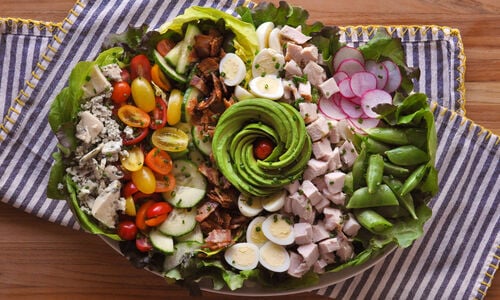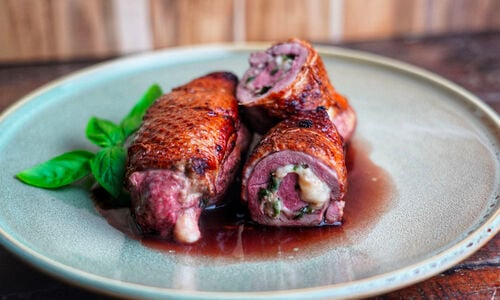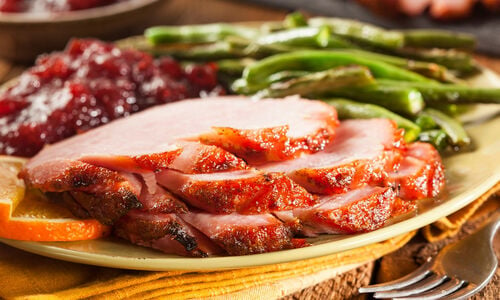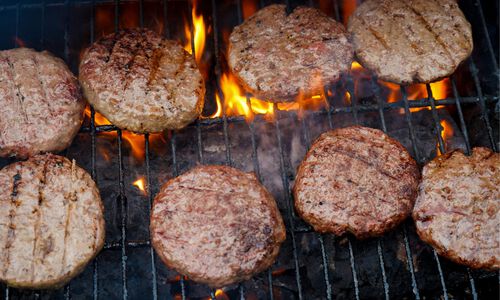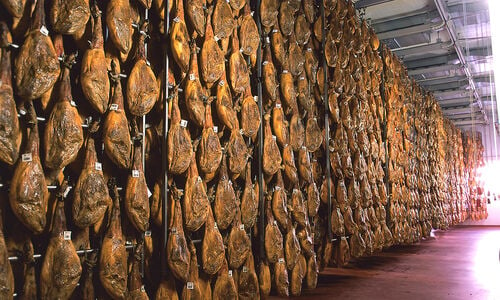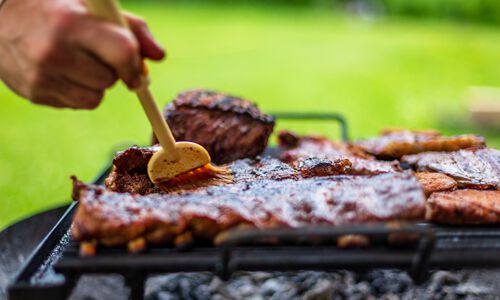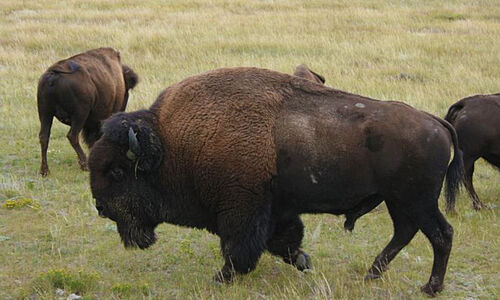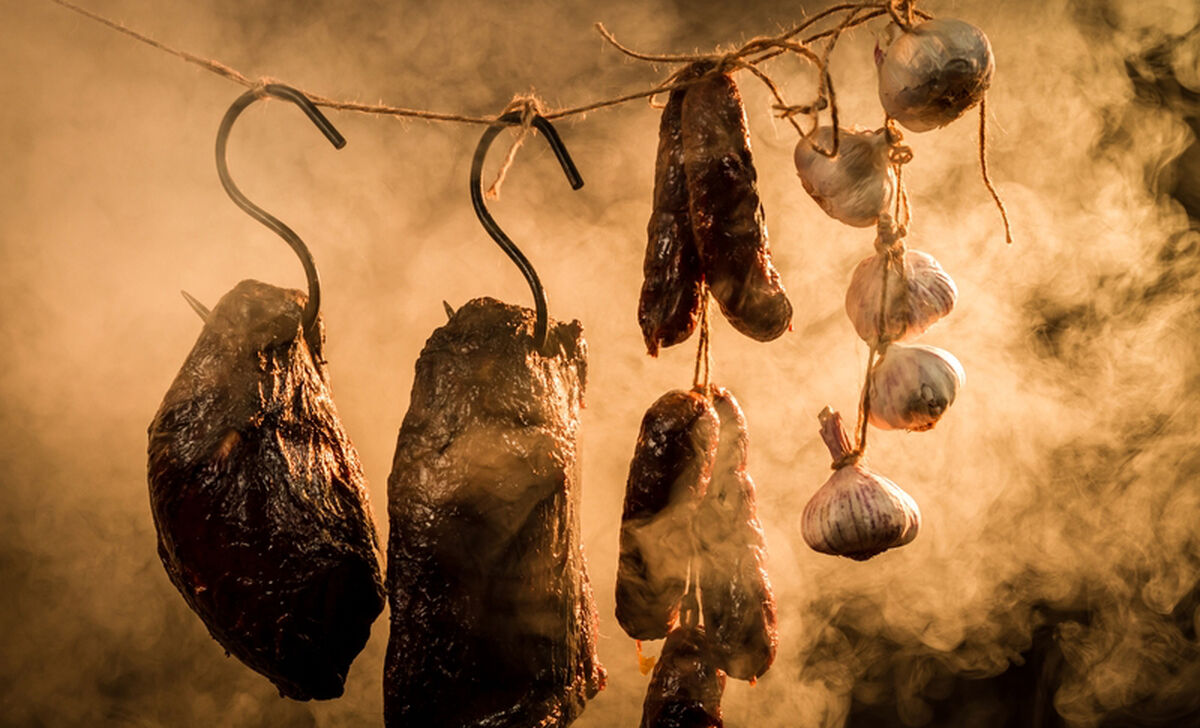
Smoke not only dries the meat, it contains certain antibacterial properties that help preserve the protein. Today, even despite the advent of modern refrigeration, cooks and eaters alike are still just as enamored with smoked food. Truly, there's something incomparably wonderful about that deep, smokey flavor, whether it's beef, poultry, lamb, goat, pork or fish.
You might think that you need an expensive, industrial-sized smoker to be able to enjoy the wonders of smoked delights at home, but more and more it's becoming easier to find inexpensive, effective smokers suitable for your own back yard. There are smoke boxes and smoke canisters that you can add to your traditional grill, however we tend to prefer smokers using natural lump charcoal as well as wood, and the variety of electric and gas smokers abound. Whichever method you prefer, here are a few notes about smoking that we've always found helpful.
Know Your Wood
While some cultures use various materials to smoke their foods, including everything from peat to corncobs, rice and tea, we love the taste of a wood-smoked meal. All woods aren't created equal, and this is directly reflected in the flavor of the smoke they provide. More delicate meats such as chicken and fish might take better to the lighter, sweeter smoke of applewood, whereas pork ribs shine when smoked with mesquite and hickory. And, of course, feel free to experiment! It's easy to find wood chips and logs in alder, pecan, maple, cherry, even plum.
Low and Slow
No matter what kind of fuel is providing your smoke, always make sure not to get it too hot, or you'll ruin your dinner. Barbecue enthusiasts are known to smoke their meats for as long as fourteen or sixteen hours before serving; this ensures not only that the smoke fully penetrates the meat for flavor, but also that it falls effortlessly from the bone. Look to a North Carolina "pig pickin'" for further evidence of this phenomenon (and excellent vinegary BBQ sauce). Make sure you have a decent, accurate thermometer, and keep the heat between 200 and 300 degrees F, lower if possible. Two-twenty-five has always been a magic number for us.
Consider Brining
Since, as mentioned above, smoke inherently dries out the food that it cooks, you might consider employing a brine. Nothing fancy, just a simple salt and sugar solution that, when you soak your meat in for several hours or even overnight, keeps it juicy and tender throughout the smoking process. Meats benefiting most from brining are those without a lot of natural fat, such as chicken and pork shoulder.
Branch Out
Once you've gotten used to cooking with your smoker, don't be afraid of going a little crazy with what you throw in there. We all love beef brisket and pork ribs, of course, but why not try smoking some wild boar, goat, venison or rabbit? Or perhaps some wild game birds such as guinea fowl, quail, squab, pheasant, or even wild Scottish game birds? And if you have the space, why not consider a whole suckling pig, or cochon de lait? You can even smoke some veal shank bones, then reserve the marrow and combine with good butter to create "smoked marrow butter," which you can dollop on top of a grilled steak to really impress!
